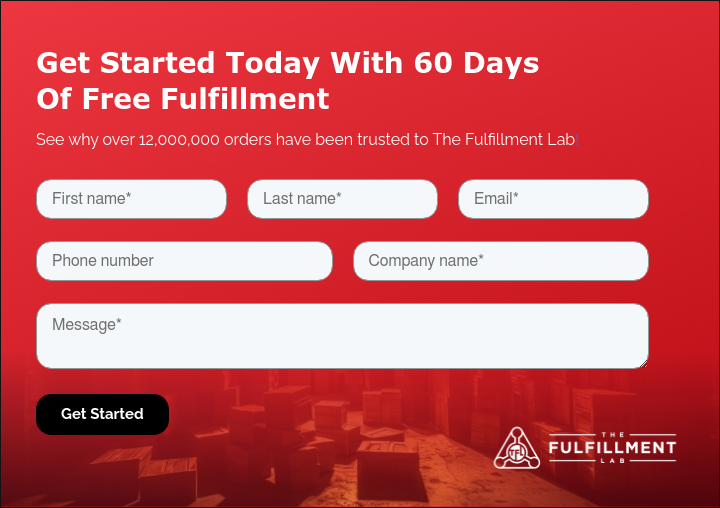Sustainable Ecommerce: 10 Ways To Make Your Company Greener
For businesses in the 1980s, greed was good. But that’s all changed, and today, green is good! Studies show that now more than ever, consumers care about a company’s environmental practices. So how can companies be more sustainable? What are some environmentally friendly methods for businesses to adopt?
What Is Sustainable Ecommerce?
Sustainable Ecommerce is all about conducting business in a way that does not deplete natural resources. It aims to meet the needs of living generations without compromising the needs of future generations. While practicing sustainability can sometimes be seen as “inconvenient,” it makes good business sense as more and more people begin giving their support (and their money) to companies that show they care about the planet.
For Ecommerce businesses, this means creating a balance between the environment, society, and economics. Today, many Ecommerce startups are coming out of the gate as sustainable online companies, so if you’re not adopting some green initiatives, it may be time to start!
Going Green Statistics You Need to Know
The Yale Program on Climate Change Communication found that between 2015 and 2020, the number of Americans alarmed about global warming more than doubled in size (from 11% to 26%), while the dismissive segment has decreased by nearly half (from 12% to 7%). Overall, the report shows that Americans are becoming more worried about global warming, more engaged with the issue, and more supportive of climate solutions. That’s not all; take a look at these other eco-friendly consumer statistics:
- 81% of consumers feel strongly that companies should help improve the environment. (Nielsen, 2018)
- 73% of consumers say they would definitely change their consumption habits to reduce environmental impact. (Nielsen, 2018)
- 72% of respondents reported actively buying more environmentally-friendly products. (Business News Daily, 2019)
- 50% of the growth from consumer packaged goods from 2013-2018 came from products marketed as sustainable. (Harvard Business Review, 2019)
So, can consumers make companies more green? All signs point to yes, as the demand for sustainable products, especially with the younger Millennial and Gen Z generations, continues to grow. It’s probably a good bet that this has something to do with Amazon’s announcement that it would put an end to their enormous greenhouse gas emissions and become carbon neutral by 2040.
10 Ways Ecommerce Companies Can Be More Sustainable
Want to go green? Here are ten environmentally-friendly methods for businesses that can show consumers you want to make a difference and care about future generations.
1. Use Eco-Friendly Packaging
The U.S. Evironmental Protection Agency (EPA) reports that containers and packaging made up amounted to more than 80 million tons of trash in 2018 alone. As more and more customers make the switch to online shopping, this number is likely to grow. However, ecommerce companies can reduce waste by using eco-friendly packaging.
While not all products are suitable for eco-friendly packaging, coated unbleached kraft (CUK) boxes, coated recycled paperboard, and chipboard paperboard made from reclaimed stock are all environmentally friendly options. When it comes to cushioning materials, consider air pillows which can be inflated. Since they consist primarily of air, they cut down on the amount of plastic used in their production.
2. Know Your Suppliers
You can practice sustainability within your company, but if those in your supply chain are not practicing sustainability, you’re not truly eco-friendly. It may not be a conversation you want to have with product and service suppliers (and making a switch may be one of those “inconveniences”), but if you’re committed to the environment it’s something that has to be done. Here are some things to look for:
- Is your supplier local (or nearby), reducing shipping/travel distances?
- Are products free from toxic materials or ozone-depleting substances?
- Can products be recycled? Or are they produced from recycled materials?
- Are products made from renewable materials?
- Are products designed to be repairable and not thrown away?

3. Recycle When Renovating
When it’s time to renovate your business, remember to recycle. Rather than send usable materials off to a landfill, turn these materials into a charitable, tax-deductible donation to an organization like Habitat for Humanity. They will take everything from appliances to used lumber off your hands and sell it for reuse, using the proceeds to fund the construction of low-income housing in your business' community.
4. Reduce Your Building Energy Footprint
40% of the United State’s energy is used for lighting, heating, cooling, and appliance operation. This has inspired the creation of high-efficiency buildings using net-zero and passive construction methods and employing solar and geothermal systems to reduce energy usage by 80-90% over standard buildings.
When making renovations or building new properties, use a LEED-certified contractor. LEED provides a framework for healthy, highly efficient, and cost-saving green building and is globally recognized. Also, be sure to look into various rebate programs that may be offered for upgrading insulation, solar systems, and appliances like this one from Energy Star.
5. Find a Cause
A small Ecommerce company may have limited means, and may not be able to do all the things it should to be considered truly eco-friendly. In this case, it may be wise to identify one cause you’re passionate about and fully commit yourself to it. Think about TOMS, which has made a name for themselves as a sustainable, giving brand by donating a pair of shoes to someone in need for every pair they sell. This “one-for-one” model became so successful that today they’re able to support a variety of green initiatives.
6. Watch Your Water
Climate change made a southwestern U.S. drought one of the worst in 1,200 years, resulting in stringent water rationing for businesses and households. Drought ranks second only to hurricanes among U.S. weather-related economic events, with annual losses of more than $9 billion. Businesses can do their part to help conserve water by moving to a drought-tolerant landscape design with drip irrigation and rain sensors, installing low-flow toilets and faucet aerators, and making sure any plumbing leaks and dripping taps are fixed pronto.
7. Move to the Cloud
Through cloud computing, Ecommerce companies can host information in the cloud, reducing or eliminating the need to purchase (and maintain) expensive and power-intensive servers. In fact, a survey conducted by Accenture, Microsoft and WSP revealed that cloud computing could reduce the per-user carbon footprint of large companies by 30% and up to 90% for small ones. In addition, the cloud allows employees to share and access information from anywhere, reducing travel costs and carbon emissions associated with them.
8. Educate Employees
Chances are, not all of your employees will be the environmentally-friendly type. If you’re implementing sustainable practices, there could even be push back. So, put together a “Green Team” that helps educate them on the benefits of going green, why you’re choosing to do so, and what they can do to help. Small things they can do include carpooling, using fewer paper towels, using their own refillable water bottles, turning off computers for the weekend, and using the recycling bins.
You might also consider incentivizing sustainable lifestyles outside the office. Bank of America, for example, will pay $500 of an employee’s solar panel installation, while Facebook offers employees $10,000 or more if they move within 10 miles of its campus to shorten commutes and thus reduce carbon emissions.
9. Recycle Electronics
Where do all those computers, monitors, printers, and phones go when it’s time for an upgrade? Oftentimes, into a landfill. Because of this, electronic waste, or e-waste, is the fastest-growing waste stream in the world, with an estimated 48.5 million tons produced in 2018.
Why not instead donate these to schools or local charities? If they’re not interested, which is unlikely, companies such as Dell and HP and retailers like BestBuy and Staples have tech recycling and trade-in programs.
10. Invest in Renewable Energy
Depending on where your Ecommerce company is located, you may be able to invest in clean energy sources like solar, wind, hydroelectric, or geothermal rather than relying on the ol’ power grid. While it will likely cost you more for the initial investment, it will pay off over time by offsetting your monthly energy costs. For example, EnergySage market data suggests that the average U.S. business owner can reduce overall energy costs by 75% by going solar!
5 Examples of Eco-Friendly Companies
Along with the aforementioned TOMS, here are five companies that have embraced sustainable practices. While many of these companies may have a lot more money to play around with than the average Ecommerce business owner, these examples can help get you thinking about the different approaches you could take to become more sustainable.
1. Adidas
Adidas partnered with Parley for the Oceans, an organization dedicated to addressing major threats towards the planet’s oceans. The result? Adidas x Parley, shoes that intercept plastic before it enters the oceans and turns it into high-performance sportswear. The shoes were a hit (“This is bigger than sports. This is our future.”), leading to more eco-conscious initiatives.
2. IKEA
Swedish furniture giant IKEA has already switched its entire lighting range to energy-efficient LEDs, and recently announced plans to invest $220 million in green energy, reforestation, and forest protection projects in an effort to become “climate-positive.” The company is also committed to using sustainable cotton and wool and phasing out single-use plastic products.
3. Lush
The Lush beauty brand has always followed an ecological approach, creating a line of 100% vegetarian products while advocating against animal testing. In addition, their eco-friendly packaging (or lack thereof) helped build their line of “naked products,” shampoos, lotions, etc. that are made of 100% post-consumer recycled material and come without plastic packaging.
4. Starbucks
Starbucks has been looking for ways to make its coffee cups—which are lined with plastic—more eco-friendly for decades. Now, they’ve found a way: a compostable cup with a biodegradable liner that acts like a plastic to make sure liquid doesn’t leak through. That liner makes the cup compostable in commercial composting facilities, which is a rare feat. The company has also phased out plastic straws.
5. tentree
Eco-friendly tentree, a manufacturer of sustainable fabrics like organic cotton, hemp, and cork, plants 10 trees for every purchase on the buyers’ behalf (you can even register and track your trees to see your positive impact). Since its launch, the company has planted nearly 40 million trees in over 8 countries and aims to ramp up these numbers to 1 billion by 2030.
Need some more inspiration? Forbes put out a list of its 33 top sustainable companies by industry last year. Check it out here.
Sustainability at The Fulfillment Lab
At The Fulfillment Lab, we care about the environment and do what we can to help out. Many of the boxes that we use are made of recycled fibers, and depending on the needs of our clients, we do our best to recycle returned items, saving useful parts and repairing or refurbishing others for resale.
When it comes to sustainable order fulfillment, we also try to minimize our environmental footprint, which is why we have 14 international facilities. This helps us to keep much of our global shipping land-based and allows clients to ship products closer to their intended destination. To learn more about what TFL can do for you as your strategic fulfillment center, contact us today.



